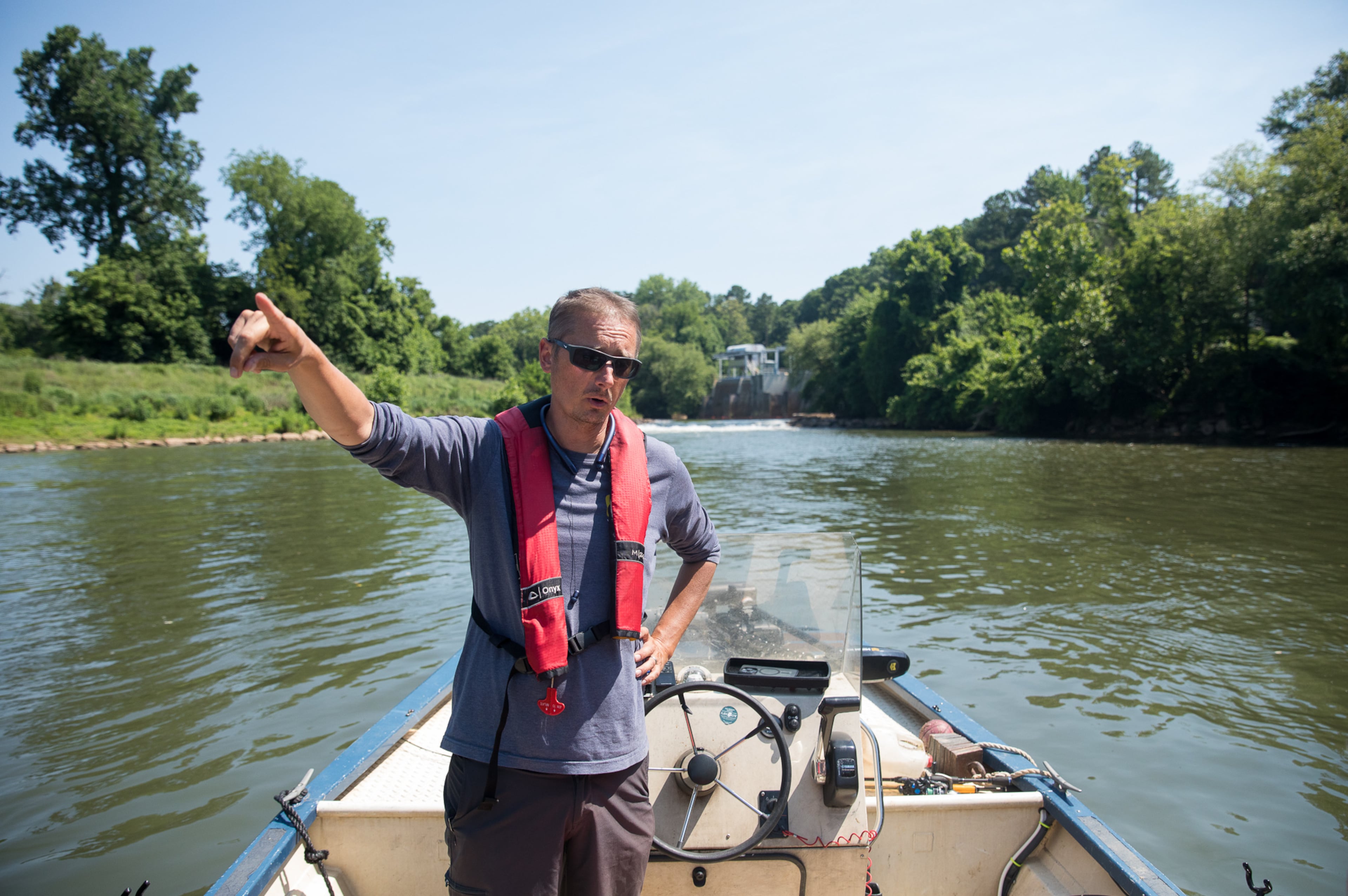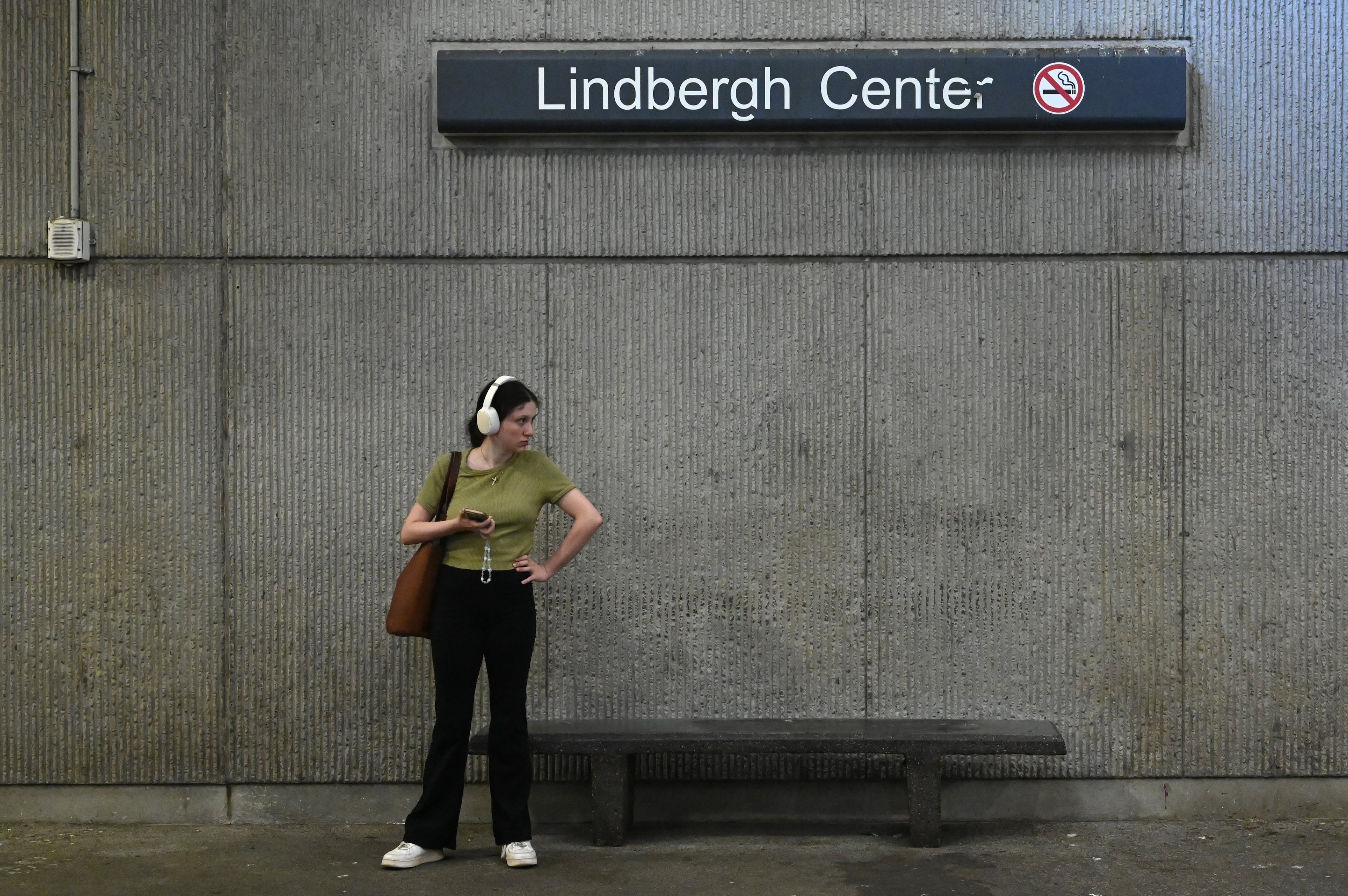War correspondent Jane Ferguson discusses memoir ahead of Atlanta TED Talk

Award-winning journalist Jane Ferguson has covered the front lines of war zones for 15 years in such places as Syria, Yemen and Afghanistan.
She’s reported on the brutality of violence and the resilience of victims, but Ferguson says there have been times that she’s battled “imposter syndrome” in her career and lacked self-confidence.
In her new memoir, “No Ordinary Assignment,” Ferguson, who is a PBS Newshour correspondent, writes about those moments, her drive to become a journalist and covering war conflicts.

She has received a George Polk Award, an Alfred I. DuPont-Columbia Award and an Emmy among other honors.
Her path to becoming a TV war correspondent is rooted in childhood and growing up on a farm in her homeland of Northern Ireland during decades of war violence. While bomb threats and military checkpoints on the way to school were commonplace, Ferguson recalls the war, known as, “The Troubles,” as being shrouded in secrecy. Her uncle’s gunshot wound from an IRA assassin was said to be an injury from a cow kick.
“On one hand, that meant that there were a lot of things that people just didn’t talk about,” she told The Atlanta Journal-Constitution.
But Ferguson had a constant curiosity as a child and teenager. She became informed by watching BBC News.
“It was a huge inspiration for me,” Ferguson said. “I had an incredible wanderlust to see the world.”
Ferguson is in Atlanta for a TED Talk appearance today at Woodruff Arts Center.
Q: What is the core message that you want to get across to readers in “No Ordinary Assignment?”
A: I want people to feel inspired to pursue careers that have a true sense of purpose. Because a lot of the book is also about my own personal journey and how tough it is. It’s hard to make it in competitive industries, but I want people to feel inspired to just keep going. Especially for young people who say they don’t know how they’re going to be successful. I didn’t know how to do it either.
I was just this little kid from a rural farm who faced a lot of rejection and a lot of failure and just kept picking (myself) up and moving forward.
Q: In all the conflicts you’ve covered, is there one that you will never forget?
A: I’ve covered wars, revolutions, humanitarian crises but what I will never forget is the fall of Kabul (in 2021) and watching a state collapse; literally watching the Taliban march down the street. I spent a lot of my career in Afghanistan. It was really devastating to see.
At the airport, U.S. Marines and British soldiers and a splattering of NATO allies are trying their best to control the crowds. They’re having to hold back those that are trying to get into the airport. I remember seeing the American soldiers’ faces. They were in shock and appalled at having to push women and children back towards the Taliban. They were trying to prevent the airport from being literally overrun.
It was a complete breakdown of any kind of norms. At some point the American soldiers are having to talk to Taliban commanders through translators.
The Taliban is beating people with sticks and whips to try to keep the people back and started firing guns in the air to try to control the crowd.
Q: Are there times when you’re alone in private moments after covering these events that you find you have to let out your emotions and cry?
A: I think it’s really important for your own emotional health. I try to stay relatively stoic and focused while I’m doing the work. I’ve often said in the past, that when I come home from an assignment, I have a good cry afterwards.
At one stage when Kabul fell, I was interviewing a woman who was desperately trying to flee. We had to edit out chunks of the interview because I was crying while interviewing her. I try to make that very, very rare because to do the job well, you do have to be able to focus on other people’s emotions and not your own.


